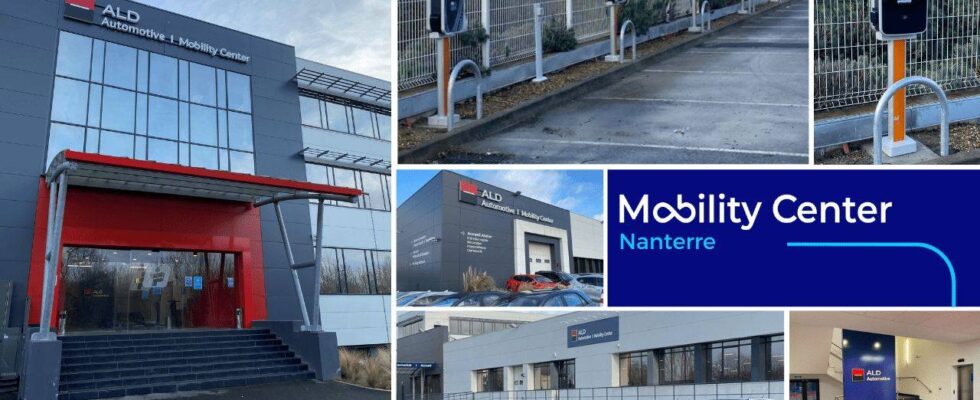(AOF) – ALD lost 1.25% to 11.03 euros after announcing net income group share of 315.5 million euros, up 22.4% compared to the 1st quarter of 2022. The subsidiary of Société Générale, which specializes in long-term vehicle financing, specifies that the margin for rental contracts and services reached 541.1 million euros, up 63.3% compared to the 1st quarter of 2022, “reflecting the reduction in depreciation”. ALD had 1.815 million contracts managed worldwide at the end of March 2023, and a financed fleet of 1.423 million vehicles.
ALD announces that its gross operating profit increased by 33.8%, to 731.6 million euros “thanks to a robust commercial dynamic and a market for second-hand vehicles which is still very favorable”.
“ALD’s Board of Directors has convened an extraordinary general meeting on May 22, 2023 to close the acquisition of LeasePlan”, announces Tim Albertsen, Chief Executive Officer of ALD. “We are very excited to welcome the LeasePlan teams very soon and begin a new chapter in our development, where we will join forces to continue to lead the transformation of the mobility sector and generate value for our customers and our shareholders”.
AOF – LEARN MORE
Key points
– European leader and 2nd worldwide in car rental, with a fleet of 1.45 million vehicles;
– €1.3 billion in revenue generated by lease income (48%), by lease-related services (46%) and by resale of vehicles at the end of the contract;
– European presence (80.3% of the fleet in Western Europe, 8.8% in Central Europe and 5.3% in Northern Europe) with diversification in South America, Asia and Africa for 5.6% ;
– Business model: contracts lasting more than 3 years for the offer to large companies, partnerships with car manufacturers and banks (34% of revenue from the offer to companies and 66% to individuals) and diversification of the offer to individuals;
– Capital controlled at 79.82% by Société Générale, Tim Albertsen being Chief Executive Officer and Diany Lebot chairing the 10-member Board of Directors;
– Healthy financial position with a debt ratio of 16.7%.
Challenges
– “World 2025” strategy which will have to be revised after the acquisition, effective in December 2022, of Lease Plan, for an amount of €4.9 billion paid in shares and cash, which would make the group, baptized NewALD, the world leader in mobility with a fleet of 4.5 million vehicles and would reduce the share held by Société Générale to 53%;
– Innovation strategy: anticipation of the use of connected and intelligent vehicles / global service from the single MyAld platform combined with 2 sales platforms / extension of the digital solution offers – Pop Go, ALD Sharing, ALD Move, etc.;
– Environmental strategy aimed at reducing carbon emissions by 30% in 2025 vs 2019, towards customers: from a single label: ALD bluefleet, indicating more responsible services, ALD switch (electric or internal combustion/hybrid vehicles), ALD electric (integration of electric vehicles into fleets), ramp-up of non-diesel vehicles and shared use (partnerships with Blablacar, Klaxit, Drivy, etc.) / “green” loans for the acquisition of low-carbon vehicles ;
– Spin-offs from partnerships (Amazon in Spain, Tesla in 14 countries, Polestar in 3 and Mitsubishi in Malaysia) and diversification into flexible short-term rental and car-sharing;
– Soaring sales prices for used vehicles, to €3,212 per unit;
– Activity protected by the multi-year duration of the rental contracts.
Challenges
– Resistance to 5 challenges: interruptions in supplies: anticipation of orders, support for partnerships with manufacturers / rise in rates and exchange rates: systematic hedging / inflation: adjustment of parameters to new contracts / recession: increase in usage offers and multicycle rentals / increase in energy: strengthening customer advice and innovative products;
– After a net profit up 72% on 1
er
semester, 2022 objective of a 2 to 4% increase in the financed fleet, a unit resale price of +€2,000 and a distribution rate of 50 to 60%.
The negative effects of rising interest rates
The rise in interest rates normally causes an increase in bank income through the loans granted. In Europe, according to a survey conducted by S&P among 85 banking establishments, the sector expects an average increase of 18% in its net interest income. However, this new inflationary context also has undesirable effects, in particular an increase in refinancing costs. It is also accompanied by the fear of a new recession, which would then affect all the bank’s businesses, ranging from loans to asset management, whose income is correlated to market valuations. Reassuring element: the banks of the euro zone are sufficiently solid to face a deterioration of their environment.
